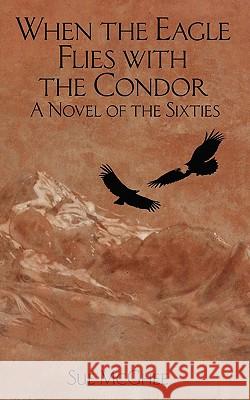When the Eagle Flies with the Condor: A Novel of the Sixties » książka
When the Eagle Flies with the Condor: A Novel of the Sixties
ISBN-13: 9781453829288 / Angielski / Miękka / 2011 / 398 str.
When the Eagle flies with the Condor, there will be peace and brotherhood among nations. This is a two thousand year old prophecy and the underlying theme of the novel, but the novel is about more than that. It is a story of brotherhood and love, revolution and war, survival and friendship, and begins with two coddled American youngsters whose father builds roads in an attempt to bring commerce to the natives of the backward and poverty stricken country of Bolivia. Their mother, uncomfortable and plagued with anxieties generated by constant political unrest, fills her days with trivialities and alcohol. The children's care-free lives are disrupted when they must return to the U.S. for reasons unknown to them at the time. What follows is the boy's anti-social response to what he ultimately deems a godless universe and his sister's painful withdrawal caused by fears of abandonment by her family. As the children move into adulthood, their reactions to these inimical forces result in his joining the army and deploying to Vietnam, and her returning to South America as a sort of apprentice shaman ministering to the needs of the natives. Their lives are played out against the backdrop of the 1960s and everything that volatile decade represents. They are players, yes, but they are astute observers as well, recognizing the similarities among the indigenous people of the world with their knowledge, latent power and untapped potential for good. Thus, the prophecy of The Eagle and the Condor comes into play with its message that at the beginning of the fifth Pachacuti, the balance of power will shift and the indigenous peoples of the world will begin to resume their rightful place among nations.
Zawartość książki może nie spełniać oczekiwań – reklamacje nie obejmują treści, która mogła nie być redakcyjnie ani merytorycznie opracowana.











